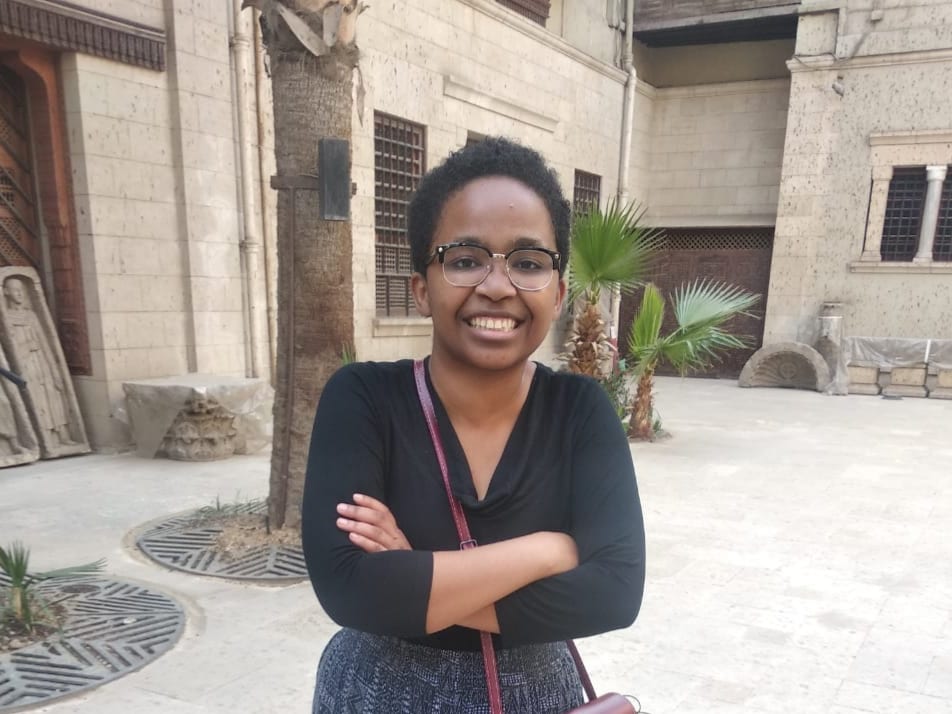Six months after Tunisia became the first Arab country to criminalise racial discrimination, with a law passed by the nearly unanimous vote of Tunisian Parliament, many Tunisians are recognising that it will take time for it to become second nature in their day-to-day interactions.
Even as a non-Black Tunisian, Sonia Ghribi is one of those who has seen this reality up close through her work with various communities in her region. Yet she and those she works with remain optimistic for the precedent this law has set and the impact it will have on future generations – even, hopefully, her own.
In an historic move, Tunisia – a country in which black citizens are nearly twice as likely to be unemployed and where ten per cent of its “dark-skinned” population suffers abuse and severe violence – formally acknowledged racism as pervasive in society. It introduced legislation on 9 October 2018 to promote equality for all those living within its borders, including the approximately 15 per cent who identify as “Black”. This is not the first time Tunisia has led the way in fostering equality: in 1846, it became the first country in Arab world to abolish slavery.
Before the introduction of the “Elimination of All Forms of Racial Discrimination” Act late last year, some regions and communities in Tunisia were home to a system of common racially discriminatory practices, including the placement of white and black people on separate buses, among others.
READ: Tunisia’s Arab Summit and the Algerian uprising
For Sonia, equality in the community is everything: she has been an avid volunteer for years with youth at risk of radicalisation through organisations like Generations For Peace (GFP) whose youth-led peacebuilding programmes using sport, arts and other activities promote acceptance, bring about inclusion, foster respect and build peace in Tunisia and around the world. She has served with refugees in Choucha refugee camp, many of whom have escaped the instability of countries in Sub-Saharan Africa or neighbouring Libya. Now struggling to integrate in Tunisia, they often cannot feel the acceptance they hoped to find in their new home. Many of those she has worked with need help to recover from the violence they have experienced as victims in their home countries and in Tunisia, where they had hoped to secure a better quality of life.
When Sonia worked with refugees in Choucha, people often discouraged her from spending time with them, believing that white and black people should be kept separate. While the ratification of the anti-discrimination act has led to a decrease in such actions, it is clear to her that the sentiment cannot just disappear because the law was enacted.
The fact that social cohesion and local peacebuilding begins at the grassroots – not necessarily from higher authority – is a lesson Sonia has seen put into practice. She now knows how to work not only with large numbers of people but also with those who are different from herself and even marginalised in society. Yet through the work she does with youth like Jalel in her own community – training them to communicate with one another peacefully, using sport and arts to provide a safe space in which to foster trust and cooperation – Sonia is instilling within them values that will build a peaceful Tunisia.
READ: Tunisia’s Essebsi says he won’t run for second term
According to Sonia, racial discrimination does not end from fear of the law, of fines, or of arrest, but rather from acceptance and understanding of one another. Yet a law that penalizes racial discrimination is a significant step toward ensuring equality for all people in Tunisia. Many in the local community have become more supportive not only of Sonia’s work with refugees, but also of the refugees themselves, who are determined to overcome any obstacles and fully integrate with Tunisian society by learning to read and write. For Sonia, inclusion is key in helping all Tunisians, of all backgrounds, live together more peacefully.
“Organisations working in Tunisia should include people from all parts of society,” Sonia reflected, “to teach people that they are normal human beings.” This would challenge prejudices that cause further divisions between people by providing a place for dialogue. Only by working together the issue of racism can be addressed and eliminated, and the first step towards this is teaching people not to be afraid of difference, but to embrace it. We must recognise the common humanity of all people, regardless of race, nationality, or class.
“We are all different,” Sonia said, “but we can live together.”
The views expressed in this article belong to the author and do not necessarily reflect the editorial policy of Middle East Monitor.

![Tunisians take part in Generation For Peace events which aim to end racism and discrimination in society
Jordan-based NGO Generation For Peace holds events to encourage social cohesion and local peacebuilding at a grassroots level in
Tataouine, Tunisia.
[GFP Program]](https://i0.wp.com/www.middleeastmonitor.com/wp-content/uploads/2019/04/19-04-08-Generation-for-peaceTUN17-FRV-PEDSC_6870.jpg?fit=920%2C613&ssl=1)

![Tunis, Tunisia.Activities Tunisians take part in Generation For Peace events which aim to end racism and discrimination in society Jordan-based NGO Generation For Peace holds events to encourage social cohesion and local peacebuilding at a grassroots level in Tataouine, Tunisia. [GFP Program]](https://i0.wp.com/www.middleeastmonitor.com/wp-content/uploads/2019/04/19-04-08-Generation-for-peaceTUN17-FRV-PEDSC_7035.jpg?w=610&h=407&ssl=1)
![19-04-08 Generation for peaceTUN17-FRV-PE_DSC9841 Tunisians take part in Generation For Peace events which aim to end racism and discrimination in society Jordan-based NGO Generation For Peace holds events to encourage social cohesion and local peacebuilding at a grassroots level in Tataouine, Tunisia. [GFP Program]](https://i0.wp.com/www.middleeastmonitor.com/wp-content/uploads/2019/04/19-04-08-Generation-for-peaceTUN17-FRV-PE_DSC9841.jpg?w=302&h=202&ssl=1)







